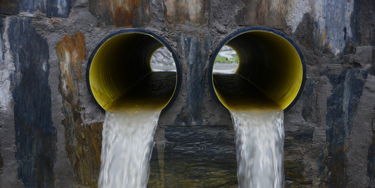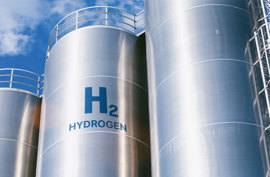Progress over perfection - tackling pollution in the UK water industry
Published: 25 April 2024
Polarisation in public discourse is becoming more extreme, making it difficult for the general population to know where the truth lies. It is equally difficult for industry and regulators to agree balanced sustainable improvements.
With the news recently that sewage spills by water companies in England’s rivers and seas have more than doubled in 2023, we see the battle lines being drawn again between a public who expect a clean, safe, and sustainable water environment, and an industry dealing with an ageing infrastructure and a changing climate.
Public opinion serves as a crucial barometer of societal values and expectations regarding environmental stewardship and sustainability. In recent years, there has been a growing awareness and concern among the public about the impact of sewage pollution on freshwater ecosystems, wildlife habitats, and recreational activities. As people become more environmentally conscious, there is an increasing demand for cleaner rivers and waterways, reflecting a desire for healthier environments and enhanced quality of life.
But, while it may be factually correct to state that rainfall in 2023 was 20% higher than 2022, there is a danger that water companies start sounding like Canute raging at the incoming tide when coming up against public opinion. As engineers and asset managers, we can be technically right and publicly wrong. An engineer can sit down and explain why a sewer is designed to spill to the environment, but the public expect better.
However, it is essential to acknowledge the role of technical facts and performance metrics in addressing sewage pollution effectively. Technical data, such as water quality monitoring results, sewage discharge volumes, and compliance with regulatory standards, provide critical insights into the extent of pollution and the effectiveness of mitigation measures. These technical facts serve as the foundation for evidence-based decision-making, regulatory enforcement, and performance evaluation. This is the first time we have had data covering all 14,580 combined sewer overflows in England and this should be acknowledged as a milestone, as only by understanding the extent of the problem can we come together to tackle it effectively.

With the position of the public and industry clear, the question that we as a sector now need to ask ourselves is: how can we do better? How can we move forward quickly and sustainably that doesn’t risk unintended consequences?
Our desired outcome is to have a clean, safe water environment for the benefit of nature and public amenity. This will be a long-term journey that cannot be solved by one party in isolation and needs the combined collaboration and innovation of all interested parties. The reality is that there is no ready-made solution to the problem, and a toolkit of innovative asset management decision-making processes allied with both nature-based and traditional engineering designs and contracts will maximise the benefit and value at each stage.
Flexibility is required that acknowledges and reflects the regional differences across the country, and this can be underpinned by four key themes: transparency, collaboration, engagement, and implementation.
The publishing of real-time CSO spill data is a huge step forward in shining a light on the scale of the challenge faced. Continuing on this path of transparency is essential in allowing an honest debate. More data paints a richer picture from which to analyse the problems, comparing the experience of different companies and sharing learnings more broadly across the sector. The future opportunities for use of big data and AI tools will only enhance the decision-making process.
Collaboration among diverse stakeholders, like regulators, experts, and community representatives enriches policy development. It brings varied perspectives, expertise, and experiences to the table, encouraging inclusive decisions that address complex challenges effectively. This collective effort enhances policy relevance, feasibility, and acceptance, leading to better outcomes for all involved.
Finding a way to meaningfully engage with the public and other stakeholders that breaks down the barriers and invites a wide range of feedback into the discussion builds a stronger collaborative culture. People respond to honest dialogue where they feel they are being heard and can see intent to change.
Finally, it is essential to work quickly, implement trial solutions, and learn in practice what works and what doesn’t, building a portfolio of options that can be used in different scenarios. Taking a progress over perfection mindset that implements solutions, measures their benefit, and is agile enough to adapt to the results achieved.
We need to change the narrative from this being a water company problem to a societal one, with a part to be played by urban planners, developers, industry, and agriculture as well as environmental groups and regulators. The reality is that there is not one solution and only by collaborating can we have the right framework and tools to solve our biggest challenges.
Latest resources
 News
NewsAqua Consultants secures place on Cadent Gas business strategy services framework
 Case study
Case studyAssessing New Zealand’s hydrogen feasibility as part of their journey towards a decarbonised future
 Case study
Case studyUnlocking the potential of biomethane for South West Water
 Insights
InsightsSerious gaming: A solution to long-term planning in the water sector
Here to solve your biggest challenges and grow sustainable value
Our expert consultants are available to broaden your thinking, lead transformation, and help you achieve successful outcomes.
Contact our experts

